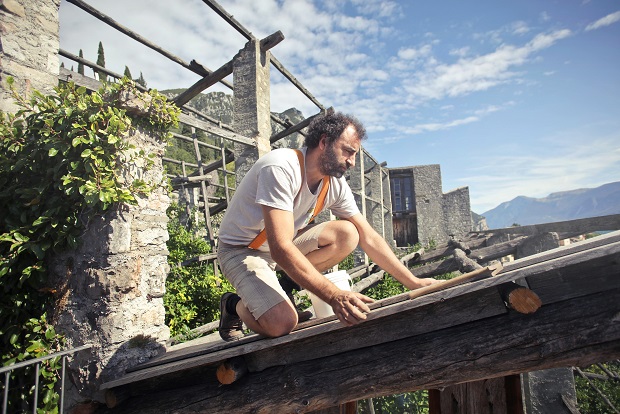
Finding a reliable roofing contractor Ottawa can feel overwhelming with numerous options available. Choosing the right professional is crucial for ensuring quality workmanship and longevity of the roof. Homeowners need to consider factors such as reputation, experience, and certifications when selecting a contractor for their roofing needs.
Ottawa’s climate can be harsh, making quality roofing even more essential. A qualified contractor understands local weather conditions and the specific materials that work best for the area. This knowledge can significantly impact the durability and efficiency of the roofing system.
Investing time in research and asking the right questions can lead to a successful roofing project. Looking for reviews, requesting quotes, and checking for proper licensing will help identify the best contractors in Ottawa, ensuring peace of mind in the long run.
Understanding Roofing Services in Ottawa
Roofing services in Ottawa encompass a range of materials, considerations for weather patterns, and advancements in technology. Knowing these aspects helps homeowners make informed decisions about their roofing needs.
Types of Roofing Materials
Ottawa homeowners have several roofing material options. Some common choices include:
- Asphalt Shingles: Widely used due to their affordability and ease of installation. They offer decent durability and a variety of colors.
- Metal Roofing: Known for its longevity and resistance to weather extremes. Metal roofs can last up to 50 years with proper maintenance.
- Tile Roofing: Offers aesthetic appeal with excellent durability. Suitable for homes seeking a distinctive look, tile can withstand harsh conditions.
- Wood Shakes: Provide a natural appearance. This material requires regular maintenance to prevent decay.
Each material comes with distinct advantages and disadvantages, making it essential for homeowners to assess their priorities, budget, and environmental impact.
Weather Considerations for Ottawa Roofs
Ottawa experiences diverse weather conditions, including cold winters and humid summers. These factors significantly influence roofing decisions.
- Snow and Ice: Roofs must be designed to handle heavy snow loads and ice dams. Proper insulation and ventilation are crucial to prevent ice buildup.
- Temperature Variability: Extreme temperature fluctuations can cause materials to expand and contract. Selecting materials with appropriate thermal coefficients is important.
- Rain: Adequate drainage systems need to be established to manage rainfall effectively and reduce the risk of leaks and water damage.
Awareness of these considerations will aid homeowners in choosing appropriate materials and designs that enhance the lifespan and effectiveness of their roofs.
Advancements in Roofing Technology
Recent advancements in roofing technology offer Ottawa homeowners improved options.
- Cool Roofing: Reflective materials reduce heat absorption, thus lowering cooling costs in summer. This can be particularly beneficial during hot summer months.
- Synthetic Underlayments: These offer better moisture protection than traditional felt paper. They enhance a roof’s durability and longevity.
- Smart Roofing Solutions: Integrating sensors and monitoring technology helps homeowners track roof performance and detect potential issues early.
Staying informed about these advancements allows homeowners to select roofing solutions that provide increased efficiency, durability, and long-term savings.
Selecting a Roofing Contractor
Choosing the right roofing contractor is crucial for ensuring quality work and long-lasting results. Key considerations include the contractor’s qualifications, workmanship reputation, and understanding of warranties and contracts.
Qualifications and Certifications
A qualified roofing contractor should have relevant licenses and certifications specific to local regulations. In Ottawa, contractors need to meet the Ontario Building Code requirements.
The following certifications can indicate expertise:
- Professional Roofers Association Membership
- Manufacturer Certification Programs
These certifications suggest that the contractor has undergone necessary training and adheres to industry standards. Additionally, verifying insurance coverage, including liability and workers’ compensation, is essential. This protects homeowners from financial liability in case of accidents during the project.
Evaluating Workmanship and Reputation
To assess a contractor’s workmanship, reviewing past projects is important. Homeowners should ask for a portfolio of completed work, focusing on projects similar to their own.
Customer reviews and testimonials can provide insights into the contractor’s reliability and quality. Checking platforms like Google Reviews or Better Business Bureau can help gauge satisfaction levels.
Moreover, seeking referrals from friends or family can offer a trusted perspective. A contractor with a good reputation will also provide a list of references that potential clients can contact for firsthand feedback.
Understanding Roofing Warranties and Contracts
Roofing warranties can vary significantly among contractors. It’s important to distinguish between manufacturer warranties and workmanship warranties.
Manufacturer warranties cover materials, whereas workmanship warranties cover installation issues. Homeowners should clarify warranty durations and what each covers.
Reviewing the contract details is equally essential. Key components to examine include:
- Scope of Work
- Payment Schedule
- Project Timeline
All terms should be clearly outlined to avoid any misunderstandings. Homeowners must ensure they fully comprehend the contract before signing, as it serves as the foundation for the entire project.
Zudio Online Shopping: Discover Affordable Fashion Trends Online
Zudio online shopping offers a unique platform for budget-conscious shoppers seeking styli…









